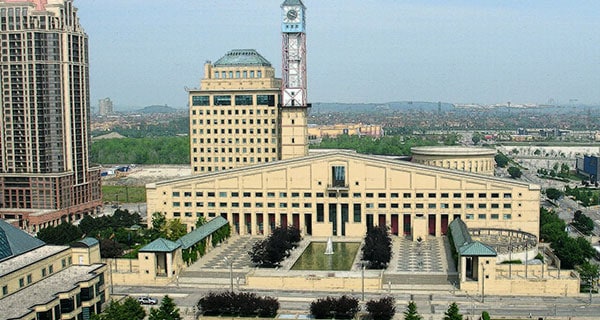Mayor Crombie Says Ontario Bill Will Force Residents To Pay More For City’s Growth
Published May 31, 2019 at 10:49 pm

Mayor Bonnie Crombie has stated that Ontario’s Housing Supply Action Plan and Bill 108 will greatly impact Mississauga and its residents.
On May 2, the Minister of Municipal Affairs and Housing Steve Clark presented the bill. The bill aims to increase the supply of new ownership and rental housing in Ontario. Bill 108 transforms Ontario’s land-use planning system, which includes changes to thirteen acts and some provincial planning policies. It also introduces many changes to the city’s current financial tools used to support development.
Mississauga currently has over 20,000 pre-zoned residential units ready to be built. In 2018, the city issued building permits for 3,300 residential units, and completed development approvals for 4,100 residential units. According to the city, less than 10 per cent of approved units have been built.
According to the city’s press release, the new bill will affect these proposed units by taking the decision-making out of the hands of the city and into the hands of the developer. The Ontario government will reduce the fees and approval burdens for developers. Developers will now have a greater power to appeal decisions and influence outcomes of Local Planning Appeal Tribunal decisions. It will also lead to shortened timelines and less community consultation.
“While we support the aim of this legislation, to bring new housing supply to market more quickly, it does so by lessening the burden on developers by reducing fees and approval. We have not seen any evidence that reducing fees and timelines for developers will result in the creation of more affordable housing or that savings will be passed along to consumers,” said Mayor Bonnie Crombie in a press release.
With this new bill, the principle of ‘growth pays for growth’ would no longer apply, which would result in existing taxpayers and residents paying a larger share of the bill for new growth.
Bill 108 will also reduce the city’s ability to pay for community needs such as parkland, recreation, and library services.
“We are concerned this will result in a loss of Development Charge revenue to the City. As well, the currently separate charges for cash-in-lieu of parkland, Section 37, and soft services development charges will now be combined into one Community Benefit Charge. Any reduction in funds as a result of this change will limit our ability to provide adequate park, recreation, library and other infrastructure. This is the very infrastructure that promotes health, social inclusion and drives quality of life in a community,” said City Manager and Chief Administrative Officer Janice Baker in a press release.
The city has released a Planning Staff Report that explains the proposed impacts. The changes include an introduction of a Community Benefit Charge, changes to the Planning Act, changes to the administration of Development Charges and appeals of development applications, new regulations on inclusionary zoning and major transit station areas, and changes to how endangered species are classified.
“Timelines for development approvals have been shortened, which will lessen public consultation and put added administrative and financial pressures on planning staff. The current Local Planning Appeals Tribunal model is being changed back to the former Ontario Municipal Board model and there will be less opportunity for public input and greater powers for developers to appeal the planning decisions of Council,” said Commissioner of Planning and Building Andrew Whittemore in a press release.
Bill 108 has passed the second reading in the Ontario Legislature. It has been referred to the Standing Committee on Justice Policy. The committee is scheduled to hold a public hearing on May 31st. The city has stated that they will be making a formal submission to the province in advance of the June 1 deadline for public consultation.
Photo courtesy of Ontario Road Builders’ Association
INsauga's Editorial Standards and Policies


